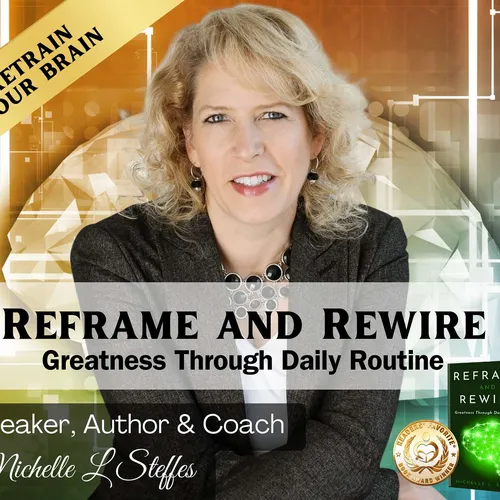Getting "Unstuck"
- Author
- Michelle L Steffes, Author / Speaker / Trainer / Coach
- Published
- Wed 30 Jan 2019
- Episode Link
- None
CHAPTER 7 – Getting “UNSTUCK” In Your Mind and Heart
In the last chapter we covered forgiveness of an offense. Hopefully, you have chosen to release this portion of your heart that is being restrained from moving forward so that you can take one more step into your destiny.
Be aware that there is another very important part of forgiveness that could also be holding your heart captive. It is stomping on every effort you have or will make to raise your standards. This part may even be more difficult than the last step. It is letting go of the past.
For each of us, there are times in our lives or careers where we have developed a deep sense of regret, remorse or anger toward ourselves. Sometimes, it is something we feel we “allowed” to happen to us, even if we were ignorant or helpless at the time. It could be partially our fault or it could be something we had no control over. Other times it may be something we tried to “fix” or “save” but for whatever reason, we failed and lost something or someone valuable. Whatever the case may be, choosing to live in the past or dwell on a loss is the worst kind of unforgiveness; an unforgiveness toward ourselves. Remaining in this state, chains us to our past and traps us from moving forward.
In Chapter 2, you learned about the importance of having a VISION and your assignment was writing your own personal Vision Statement. This step was intended to help you focus forward rather than backward. Yet, if you do not deal with whatever regrets or remorse you may have inwardly about something in your past, you will be in Cognitive Dissonance. When you are in dissonance, every affirmation, new thought or action becomes null and void. Just as your Vision Statement can become real in your mind and heart bringing it toward you, rehearsing or recalling negative experiences send you in the opposite direction.
In other words, each time you react according to past experiences rather than adhering to your new thought life and vision for the future, you send electrical impulses into old neural pathways strengthening their connectivity. This habit sustains old mindsets allowing them to remain dominant since they have deeper and wider connections than the new ones.
Here are seven questions to ask yourself about your past and potentially destructive thinking patterns:
- Were you told by someone you trusted, admired or depended upon that you were “no good” or “stupid,” or perhaps something similar?
- Did you ever struggle with a subject, relationship or job where you failed time and time again, making you feel like a failure in that area and convincing you that you were just “not good at it”?
- Have you ever tried to succeed at something you were passionate about but the circumstances, at the time, prevented you from succeeding and convinced you that it just wasn’t a good idea for you to try again?
- Did you experience a broken trust in your life or career when someone seriously let you down, hurt you or devastated you, making you feel that you could never trust again in that way?
- Was there ever an occasion where you tried very hard to impress and no matter what you did, it was never enough? Thus, ca
Michelle L Steffes is a Certified Speaker, Corporate Trainer, Executive Coach and Author of two books: "Reframe & Rewire" (also available on Audible) and "The Machine Inside Me." Discover more and contact her through her website, IPV Consulting.
